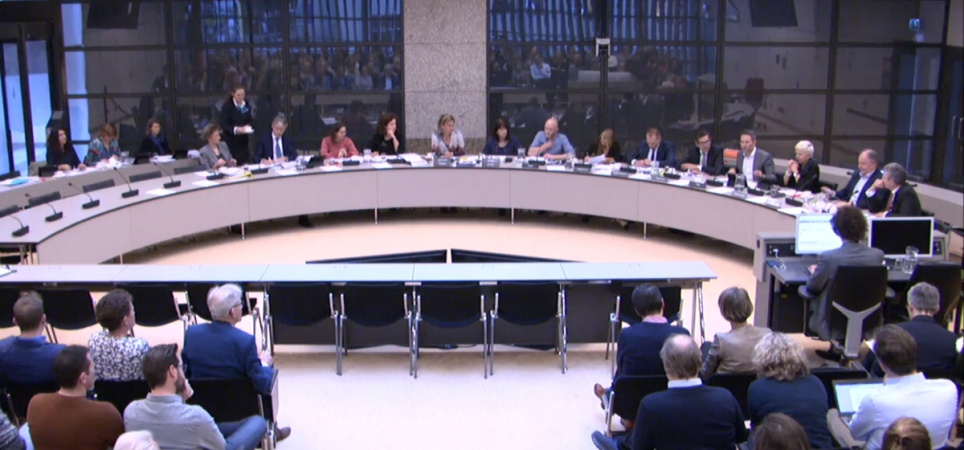Teachers' debate in the House of Representatives is far from over
Education Minister Arie Slob this afternoon barely got around to answering questions from MPs about the teacher shortage. There were too many. He did, however, indicate that he would stick to the amounts reserved for education in the coalition agreement.

Picture: House of Representatives
His timetable, as Arie Slob calls it. "I keep saying: this is the money I have to do it with. I want to use it to do what is within my capabilities." The minister believes that the causes of the teacher shortage are diverse and that a 'wide range of measures' is therefore necessary.
Coalition partner VVD, for example, focuses on 'low-hanging fruit'. Think of admitting self-employed persons and pensioners to Replacement pools, which is not possible at the moment. Or let lateral entrants follow teacher training through private institutions, which the minister did not think was a good idea. GroenLinks and the SP proposed to free up some money by scrapping the supervisory boards in primary education. Participation councils could take over these tasks, according to the opposition parties. But the responsible minister Ingrid van Engelshoven was not in favor of that. "I don't see any added value in that, rather risks."
Naive
De AOb especially mentions the many loose proposals naive. Director Eugenie Stolk: "There will probably be money to be found that you can spend differently. But when I hear that Paul van Meenen (D66, ed.) thinks that "education should also do something", or Michel Rog (CDA , ed.) claim that further training is so expensive, then I rather see the coalition's inability to come up with a real solution to the crisis affecting primary education "
Stolk was present at the debate in The Hague. "I found it very compartmentalized, too much detail and focused on the short term. I understand that the minister must adhere to the Coalition Agreement for the next three years, but there really needs to be a long-term agenda, a delta plan for education from which hope and perspective shows. That you think: I will work in that sector, because I am valued there for what I do, both professionally and financially."
Braiding
Slob was not unsympathetic about the idea of employing special secondary education (VSO) teaching staff. move to the collective labor agreement for secondary education. "This situation has grown historically, from the centers of expertise in special education. If we wanted to do it differently, we would have to integrate it. That is not easy, but in principle everything is possible. It does come with a price tag."
As soon as it came to money, he bounced the ball to the collective bargaining table. "If the employers' and employees' organizations had done their work quickly, primary school teachers could have received a higher salary as of January," says the minister. Stolk responds that they are working hard on it. "The consultations have already been intensified. We sit around the table every week and in between we spend a lot of time preparing for those consultations. But it is complex because with 270 million euros for salaries, we cannot make the collective labor agreement that is necessary for the sector."
Slob also wants to talk to the PO council about applying the job mix, which is still not happening enough. And personnel policy in schools should be tackled better. Slob: "The well-being of teachers, offering them career prospects and challenge, that also has to do with being a good employer. If you don't have any prospects, you will look elsewhere."
Disgraced
The minister of primary and secondary education did not get around to answering all the questions, but did briefly discuss the recent subsidy scheme of eight thousand euros for workload reduction for fifty of the seven thousand primary schools. He had noticed that this plan was not entirely well received. "I received letters from school boards who felt insulted." But, Slob reasoned, he was merely carrying out a motion from the previous cabinet. "Of course it is not the solution for the teacher shortage, but schools can take a step on specific topics." More applications have been received than there is budget, according to the minister. "So it just goes on."
Also read: 'It really won't be the dust comb'.
After the spring break, the education committee of the House of Representatives continues to debate. The exact date is still being scheduled.


